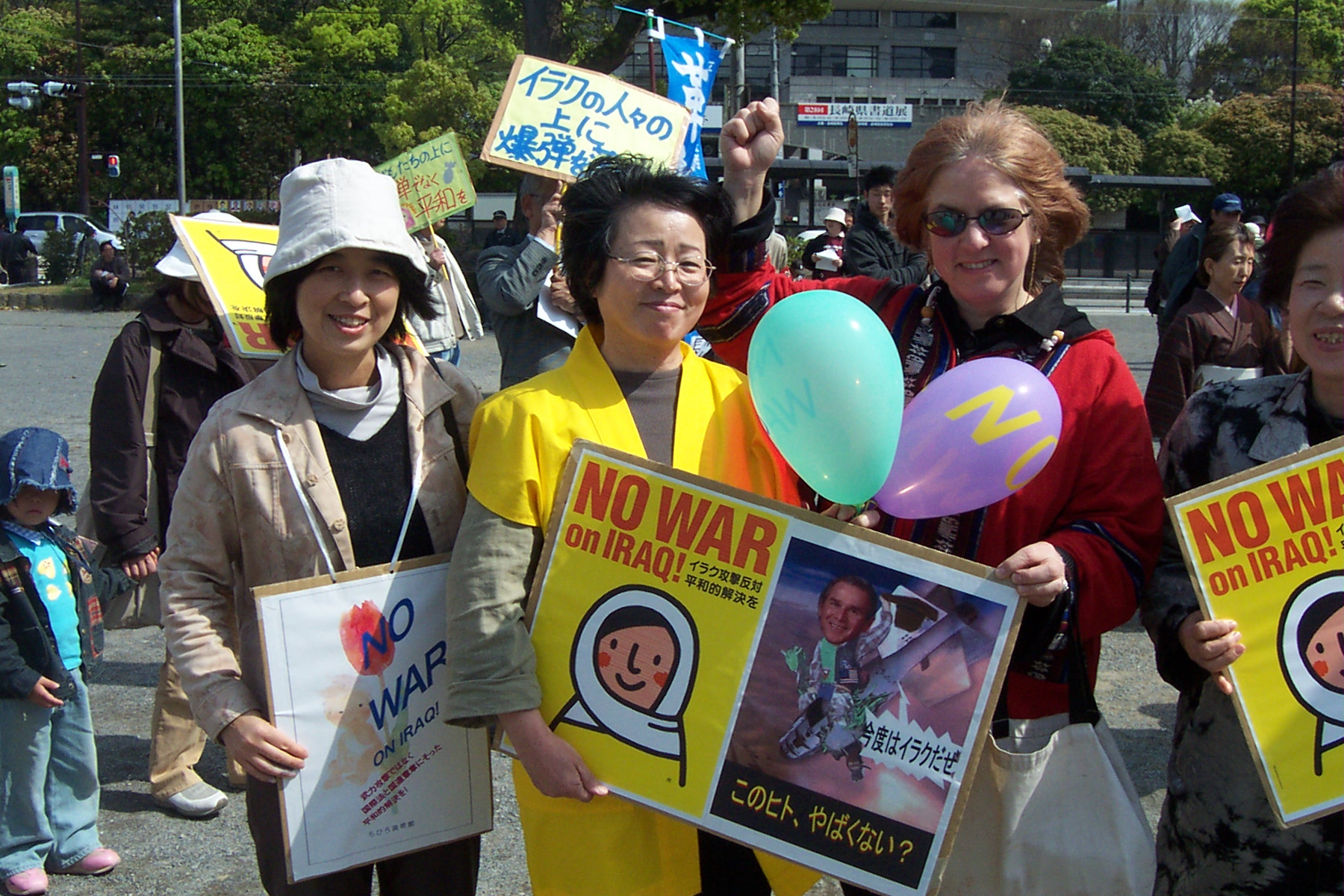Over the next few days, morale and energy levels on the ship sagged. Until this point on the voyage, we could confidently look forward to the next port of call and show up for the global studies sessions eager for information about a new country. Now, although the Universe Explorer continued to sail in a northerly direction, we had no idea where we would end up.
The 23rd in a series of blogs about Semester at Sea, a round-the-world voyage with 600 students. David Mould is the author of Postcards from Stanland: Journeys in Central Asia (Ohio University Press, 2016) and the upcoming (2019) Monsoon Postcards: Indian Ocean Journeys. Read excerpts at www.davidhmould.com (Travel Blogs) or Facebook /PostcardsFromStanland/
Each day, we checked the ship’s position as the list of SARS-free ports dwindled. One day, Manila looked like an option, the next it was in the rear-view mirror. We passed Taipei and headed into the East China Sea. If all ports in China were off limits, then it had to be Japan.
Nagasaki, on Japan’s southernmost island, Kyushu
The slightly surreal nature of the voyage seemed complete when we docked in Nagasaki on Japan’s southernmost island, Kyushu, on April Fool’s Day. The 12-day voyage from Singapore had been our longest stretch at sea. The ship had restocked with food in Singapore, but by the time we passed north of Taipei the cafeteria had run out of fresh vegetables and fruit, and the food was looking and tasting warmed-over. There was some grumbling about making two visits to Japan (we later made a scheduled stop in Osaka) but most people were simply happy to get off the ship, stretch their legs and enjoy a restaurant meal. Because Nagasaki was not on the itinerary, no field trips had been planned. Fortunately, there was plenty to see in a historic port city where, even before its name became synonymous with nuclear warfare, the Portuguese, Spanish and Dutch had competed for trading privileges, and Catholic missionaries found converts. Religious repression followed, and Japan entered almost two centuries of relative isolation before the Meiji Restoration of the 19th century. With the reopening of the country to foreign trade and diplomatic relations, Nagasaki became a free port in 1859 and regained its role as a center for Roman Catholicism in Japan.
Its main industries were shipbuilding and munitions, making it a frequent target for Allied bombing raids in World War II. The nuclear strike on August 9, 1945, destroyed most of the city’s industries and killed more than 35,000 residents; many more were to die in the years that followed from radiation-related diseases. The “Fat Man” plutonium bomb dropped from a B-29 Superfortress was more powerful than the one dropped on Hiroshima three days earlier but because of Nagasaki’s hilly terrain, there was less damage.
The Peace Park, Nagasaki
It was a moving experience to visit the Peace Park and the Atomic Bomb Museum. On the third day, Stephanie and I did what we often do in new cities—ride around on public transportation, without any particular destination, getting off when we see something interesting. In a downtown square, a crowd had gathered. On stage were speakers and a singer playing guitar and a harmonica. Stephanie said it reminded her of the Vietnam peace rallies she had attended in the 1970s. We got off the streetcar and joined the crowd. It turned out to be a rally to protest the invasion of Iraq, but people greeted us graciously, and there was no hint of anti-American sentiment.
A message was passed to the main speaker that Americans from a ship were in the crowd, and I was invited to address the rally. I made a short, impromptu speech, with a survivor of the atomic bombing translating. I don’t recall exactly what I said, but I know I said how moved and humbled we had been to visit the city’s commemorative sites and learn about the true horrors of war. The rally, I was told, was held not only to protest the invasion of Iraq, but all wars. I told the crowd that, despite what they read or saw on TV, not all Americans supported the Iraq invasion. As I left the stage, I started to cry and hugged Stephanie. I knew that what I said would not change anything, but I felt I had to say it.
Next week: Voyage blur




